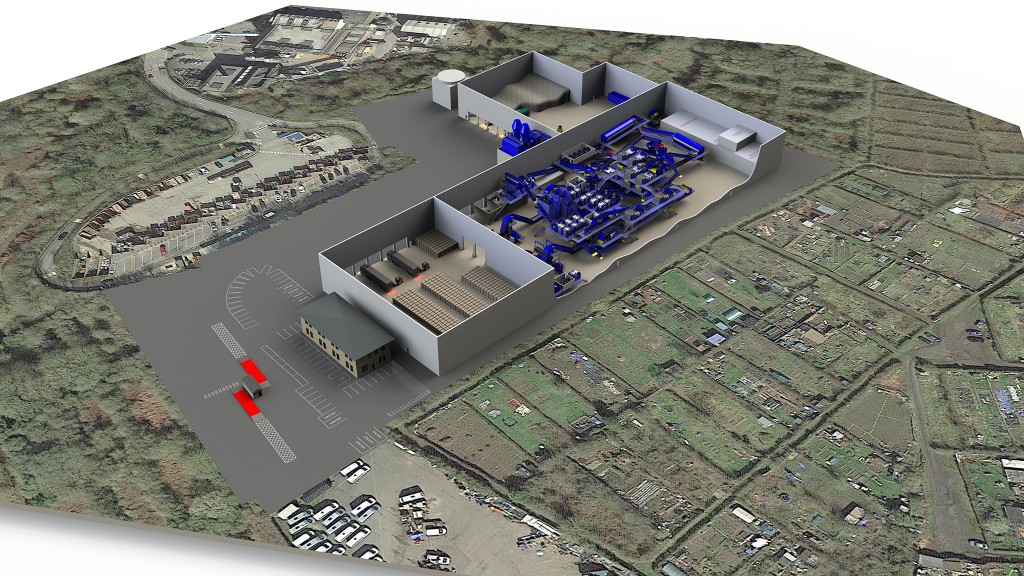Why invest money in an intelligent MRF (4.0)?

Traditionally, waste management companies have operated using a simple "management of waste" approach to operating a MRF. Throughput targets and continuous operation (minimal downtime) were the main driving forces. The industry has changed however, and the focus moving forward is now on optimizing system performance and reliability, in conjunction with increasing recycling rates and a drive for a "greener" and more sustainable tomorrow.
When considering the addition of, or upgrade to, an "intelligent" MRF, for municipalities or private operators, the main factors should always be the client's (operator) current requirements, and evolving market needs, which include throughput, reliability, output quality, and adaptability. Equally important is a full understanding of what is really expected from any proposed system. Having an engaged and focused mindset for the project with the client from the beginning, will impact and drive the entire design process. This then impacts the overall project result, through to the productive, efficient, ongoing operation of the facility itself.
An "intelligent" MRF needs to be operated in the same way as any forward thinking and successful manufacturing or production business. The operational process essentially needs to be developed using a manufacturing industry methodology to ensure that end product meets market requirements, with regards to both consistent quality and production volume, and fulfills agreed contract arrangements with clients.
Once a MRF system is installed and operational, the ability to control the entire process with accurate visibility at all stages is essential. It is also essential to be able to make required changes to accommodate fluctuations in input material, in "real time." This can be achieved in an intelligent MRF because of the system's interconnectivity, and by utilizing available data and reporting information via SCADA (Supervisory Control and Data Acquisition). This will effectively remove the requirement for an operator to physically monitor the process constantly throughout the operation.
A SCADA system provides the information and data required to demonstrate to end markets the ability of the equipment and system installed to ensure consistent quality of output. Good quality recovered material will always be in demand from third parties in the industry. Therefore, the ability to demonstrate consistent quality of end product, will initially greatly reduce the need for end markets to "spot-check" materials upon receipt, and eventually, as confidence between supplier and buyer is developed, will remove the need for SCADA-based proof of quality entirely.
The "intelligent" MRF, in addition to assessing and controlling the quality of output product, will also be able to provide accurate and "real time" data with regards to the quality of input materials. This function will enable the MRF operator to provide its suppliers with compositional data, identifying levels of contamination in input, without the need for laborious manual inspections, so that the contamination can be dealt with at the source.
The mission for MRF's of the future should be, and no doubt will be, to produce output of a quality that can be used in ongoing manufacturing processes, therefore meeting the aspirations of local authorities and waste management companies, and removing reliance on foreign markets.
Machinex has been engaged in building intelligent MRFs for many years, most recently working with Sherbourne Recycling (Coventry, UK).
According to Richard Dobbs, Acting Managing Director at Sherbourne, "Machinex have been fully engaged in this process, working with Sherbourne Recycling to provide them with a MRF to take their recycling to the "next level" within the industry. Producing high quality material output is key to securing UK based markets. As a company, we are keen to have a facility that targets closed loop recycling and the use of green energy to reduce our carbon footprint.
"The flexibility intrinsically built into Machinex' design using advanced technologies means that as an operator we will have the ability to adapt to changing markets, emerging consumer trends and new legislation," continues Dobbs. "The readiness to target new material streams as they develop will help our shareholders, who are all local authorities, to continue to improve recycling performance and ultimately benefit their communities."
Ian Smith, Business Development Manager UK, Sherbourne, also commented on their intelligent MRF project: "The whole team involved with the Sherbourne facility project were fully committed to a collaborative process throughout the design and procurement stage, and this mindset will certainly continue through installation and operation."
According to Machinex, the level of involvement and collaboration on this kind of project, or lack thereof, can make or break the finished MRFs ability to achieve overall goals, with respect to throughput, quality of end product and required ROI.
In the recycling industry, the "intelligent" MRF will be seen as a potential standard moving forward, rather than an aspiration. The belief is that the increase in intelligent MRF installations around the world will boost the potential for the introduction of "closed loop" systems, and allow more manufacturing operations and end markets to be located within the general proximity of recycling facilities, which in turn will enable greener and more sustainable objectives to be realized in the future.


